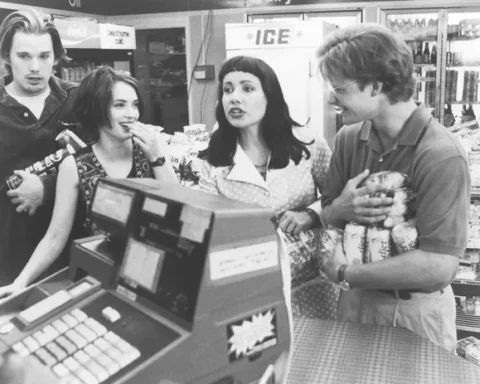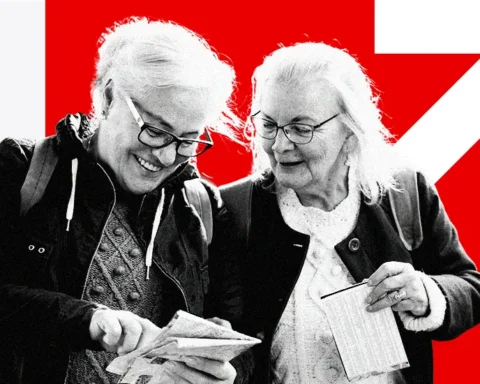A recent survey from global investment firm BlackRock revealed a rare agreement between Republicans and Democrats: the United States faces a significant retirement savings crisis. With only about half of American households having retirement savings accounts and concerns over the future of Social Security, citizens from all political backgrounds are increasingly worried about their financial security in retirement.
Retirement Concerns Transcend Political Lines
In an August survey, BlackRock asked 1,000 registered voters about retirement security. The findings were strikingly similar across party lines, with 93% of Republicans, 86% of Democrats, and 94% of independents acknowledging the existence of a retirement savings crisis. One primary concern shared by respondents was the fear of not being able to maintain their standard of living in retirement. This anxiety was expressed by three-quarters of Republicans and Democrats alike, with a slightly smaller percentage of independents echoing the same sentiment.
A Gap Between Savings and Retirement Needs
The survey also highlighted the significant disparity between Americans’ savings for retirement and the amount they believe they will need. On average, Republicans expect to require $2.1 million to retire comfortably, while Democrats estimate $2 million, and independents set a much higher target of $3 million. Despite these lofty goals, nearly two-thirds of survey participants from all political affiliations reported having less than $150,000 in retirement savings. Moreover, one-quarter of Democrats and Republicans said they have no emergency savings, a troubling statistic that 29% of independents mirrored.
Experts Warn of a Looming Crisis
Retirement experts stress that the issue of retirement security is a universal concern. Catherine Collinson, CEO of the nonpartisan Transamerica Center for Retirement Studies, pointed out, “Aging and preparing for a financially secure retirement is an ‘everybody’ issue and an ‘everybody’ opportunity. We’re all in this together.” Legislation aimed at improving retirement security, such as the bipartisan Secure Act 2.0 of 2022, further demonstrates the shared nature of this issue. The act introduced new rules designed to enhance retirement savings opportunities for all Americans.
The Retirement Reality: Hopes Versus Reality
Despite their expectations, many Americans are retiring earlier than they plan. While the average worker hopes to retire at 67, most Americans retire at 62, according to two major retirement surveys. This gap highlights the disconnect between financial planning and the unpredictable nature of retirement timing.
Diverging Political Solutions for Social Security
The Social Security fund is expected to run short of money in about a decade, so political leaders are divided on addressing the issue. Vice President Kamala Harris supports strengthening Social Security by making the wealthy pay higher taxes, a stance aligned with President Joe Biden’s efforts to raise revenue from wealthy individuals and corporations. Meanwhile, Former President Donald Trump has taken a more ambiguous position, advocating for economic growth and job creation as a solution but without detailed plans.
A Unifying Issue for Older Voters
With the 2024 election approaching, voters over 50 are particularly attuned to candidates’ stances on Social Security. According to John Hishta, senior vice president of AARP, “What they’re looking for is an acknowledgment that they’re going to do what they can to preserve Social Security for future generations.” This unifying issue has become a critical factor for older voters, regardless of party affiliation.
As the retirement crisis continues to grow, it is evident that financial security in old age is a concern shared by all Americans. Whether through bipartisan legislation or differing political platforms, the need to address the future of Social Security and the retirement savings gap is undeniable. Retirement expert Peter Lazaroff underscores the gravity of the situation: “Even with objectively high net-worth individuals, the idea of retiring and starting to spend your assets and the threat of running out of money is scary. And it doesn’t matter what your politics are.”







